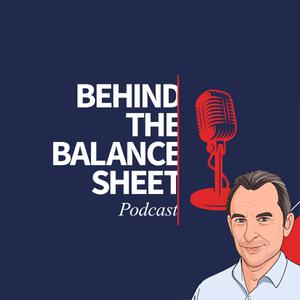
Behind the Balance Sheet
Stephen Clapham, Behind the Balance Sheet
Our objective is to remove some of the mystique around investing and improve our understanding of what makes a successful investment, or indeed an unsuccessful one. We meet leading investors and commentators and educate ourselves not just about the world of investing but also about the world. Our goal is to inform, educate, entertain and make you a better investor. We feature famous guests and some you may not know. But we can learn from them all, whether you are one of our core audience of professional investors, a student looking to enter the industry or a private investor.
- 1 hour 20 minutes#41 The Composer
Anthony Bolton is best known for Fidelity Special Situationsfund’s 19.5% pa returns, 6% above his benchmark, over a 28 year period. He was not only a highly accomplished investor but was both revered and liked by his colleagues. Pragmatic, unfailingly courteous, courageous, and universally popular, he exhibits none of the arrogance that is sometimes exhibited by successful investors with far inferior performance.
In a first for this podcast, this interview was recorded live at the Library of Mistakes in Edinburgh on November 21, 2024, in front of an audience of investors, professional and amateur.
22 November 2024, 5:30 pm - 57 minutes 34 seconds#40 The ChroniclerLionel Barber is the former editor of the Financial Times and probably the only journalist on the planet to have interviewed Presidents Obama, Trump and Putin. Under his stewardship, the FT metamorphosed from a newspaper into a digital subscription business, and was sold to the Japanese company Nikkei for 44x earnings. And as editor, Barber fully backed up former guest Dan McCrum in his investigation of Wirecard. I was delighted when Lionel agreed to come on the show to talk about his new book, Gambling Man, a biography of Masa Son, founder of Softbank and creator of the $100bn Vision Fund. I have long been curious about Son, who for 3 days at the peak of the dot.com boom was the richest man in the world. Barber spent 3 years writing his meticulously researched book for which he interviewed 150 subjects, including Bill Gates and Warren Buffett, as he explains in our discussion. Some of his stories, including his description of Son’s inner sanctum, are marvellous. If you enjoy this episode, head over to our Substack, (sign up button on https://behindthebalancesheet.com/), take the monthly paid option and get exclusive additional content, including Steve's interview with Alok Sama, former CFO of Softbank International.17 October 2024, 5:48 am
- 1 hour 6 minutes#39 The Optimizer
Bill Nygren has been at Harris Associates for over 40 years and considers himself a value investor. Yet his portfolio has owned Netflix, Amazon and Meta recently, while Alphabet is his largest position. Bill explains his unusual but highly effective approach to value investing.
Harris has also constructed a unique organisational methodology to handle investing mistakes – I have never encountered a process in which the analyst is changed when the stock doesn’t go to plan. Bill explains why and other techniques in this fascinating discussion. Steve was so looking forward to this conversation and Bill didn’t disappoint.
19 September 2024, 4:34 am - 1 hour 13 minutes#38 The Cyclist
Peter Oppenheimer is chief global equity strategist and head of Macro Research at Goldman Sachs in Europe and the author of two books on market cycles.
His first book, the Long Good Buy is sub-titled Analysing Cycles in Markets. His follow-up book Any Happy Returns, is sub-titled Structural Changes and Super Cycles in Markets and looks at longer term secular trends and the future outlook for economies and markets. Our discussion covers both.
Our episode title refers to Peter’s study of cycles in markets, but amusingly for a partner at Goldman Sachs, he arrived for our recording on a bike, not their usual mode of transport.
15 August 2024, 3:46 am - 59 minutes 13 seconds#37 The Analyst
John Armitage is a giant in the hedge fund world and in the world of investing more broadly. His firm, Egerton Capital, celebrates its 30th anniversary this year. In this conversation, John explains how he started with $10m, and why you couldn’t do that today. He touches on his portfolio, talks about his approach to investing, explaining why he requires his analysts to follow more than one sector, and why he doesn’t employ data scientists. We discuss Elon Musk, AI, and geopolitics and John gives advice to a young person contemplating a career choice.
And Nicolai Tangen, CEO of Norges Bank Investment Management, the largest single equity owner in the world, explains why John is so highly regarded by his peers.
John is our first podcast guest to return for a second episode.
18 July 2024, 4:23 am - 1 hour 18 minutes#36 The Runner
John Huber is an investor with a small fund managing his family assets and outside capital in a concentrated portfolio.
John has written an excellent blog, Base Hit Investing, for many years, explaining his investing principles.
We discuss these in this episode, including what John looks for in an investment, why he emphasises capital allocation even more today, where he sees the sweet spot in revenue growth, why he likes Alphabet, why he is focused in North American stocks but is now looking at Japan and US small caps and why Floor & Décor is one of his major positions.
20 June 2024, 4:40 am - 48 minutes 12 secondsE3 Carine Smith Ihenacho of Norges Bank IM
Carine Smith Ihenacho is Chief Governance and Compliance Officer at Norges Bank Investment Management, the Norwegian wealth fund. It’s the largest single equity owner in the world and sets out to be the most transparent. She is therefore likely the most powerful person in the world of ESG.
In our podcast episode, Huw van Steenis and I discussed:
- How you can combine sustainability with the pursuit of returns
- The difference between the US and Europe when it comes to the energy transition
- How the fund takes action to divest and exclude companies on climate, enviromental and even tax grounds
- How NBIM conduct their reviews
- Issues with ESG ratings and how they can be improved
- Why companies pushing back targets paradoxically may be a sign of progress
Carine is uniquely placed to comment on the energy transition and all things relating to governance and this was a fascinating conversation.
26 May 2024, 7:29 am - 57 minutes 33 seconds#35 The 100 Bagger Hunter
Chris Mayer is the founder of Woodlock House Family Capital and the author of 100 Baggers: Stocks that Return 100-to-1 and How to Find Them. He has written several other books and formerly wrote an investing newsletter which led him to travel the world seeking investment ideas.
Studying the universe of 100 Baggers has led Chris to a clear set of investing principles which mean his universe of investible ideas is extremely limited and his fund owns just 11 stocks.
Our discussion covers his respect for family owned businesses, his emphasis on corporate culture and his focus on the very long term. He even rejected an institutional investor as a client because they wanted monthly performance.
16 May 2024, 4:32 am - 1 hour 3 minutes#34 The Letter Reader
Lawrence Cunningham is the author of 20 books; an academic with over 60 publications; a legal expert; an accounting expert; a governance expert; a director on 3 quoted company boards; and a company adviser.
His most famous book is the Essays of Warren Buffett in which he extracts sections from the sage’s letters over decades and orders them by subject. In our conversation, he tells how he first met Mr Buffett, how the books came about, how he sends Mr Buffett a draft of each publication, and explains how and why the letters are so carefully crafted.
Few have studied Berkshire and particularly the letters as closely and he has some fascinating perspectives.
2 May 2024, 4:53 am - 52 minutes 7 seconds#33 The Stoic
Peter Cowley is a successful angel investor. But it was his tragic private life which prompted this interview. Two of his three children lost to suicide; their mother died unexpectedly; his sister lost to alcoholism; his brother died aged 21 from cancer; two decades in recovery from alcoholism; and he has now been diagnosed with terminal Stage 4c cancer and statistically has 9 months to live.
In this interview, Peter calls himself fortunate. Since meeting Peter, not a day has passed that Steve has not thought about this remarkable man and day felt grateful for his lot. Hopefully the podcast will also make people aware of how common suicide is among young men.
18 April 2024, 4:12 am - 57 minutes 14 secondsE2 Barry Norris explains why offshore wind economics are unsustainable.Steve Clapham and climate finance expert Huw van Steenis talk to Barry Norris, climate sceptic and founder and CIO of Argonaut Capital. Barry explains why he believes the economics of offshore wind are unsound. He likens wind and solar to unreliable workers and thinks nuclear and fossil fuel generation are the reliable workers. You can't have a factory staffed only by unreliable workers he argues. Barry has made good money out of shorting Orsted, the Danish offshore wind company which fell 60% from the peak. Barry explains why he thinks there may be more to go. We think you will find some of his arguments compelling and encourage you to read the shownotes and the newsletter accompanying the podcast to learn more.2 April 2024, 3:57 am
- More Episodes? Get the App
Your feedback is valuable to us. Should you encounter any bugs, glitches, lack of functionality or other problems, please email us on [email protected] or join Moon.FM Telegram Group where you can talk directly to the dev team who are happy to answer any queries.
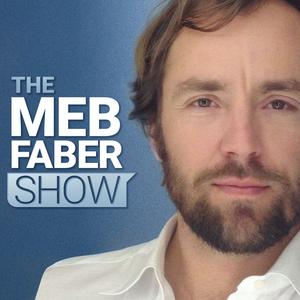 The Meb Faber Show - Better Investing
The Meb Faber Show - Better Investing
 Capital Allocators – Inside the Institutional Investment Industry
Capital Allocators – Inside the Institutional Investment Industry
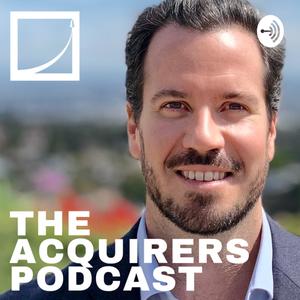 The Acquirers Podcast
The Acquirers Podcast
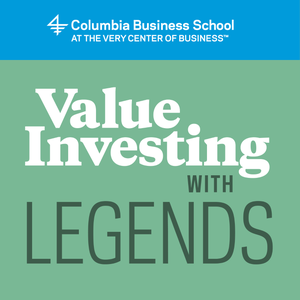 Value Investing with Legends
Value Investing with Legends
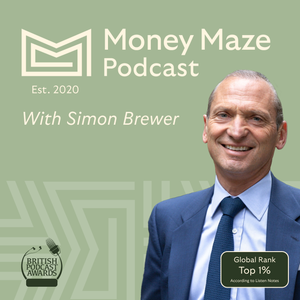 Money Maze Podcast
Money Maze Podcast
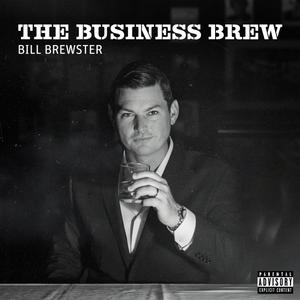 The Business Brew
The Business Brew